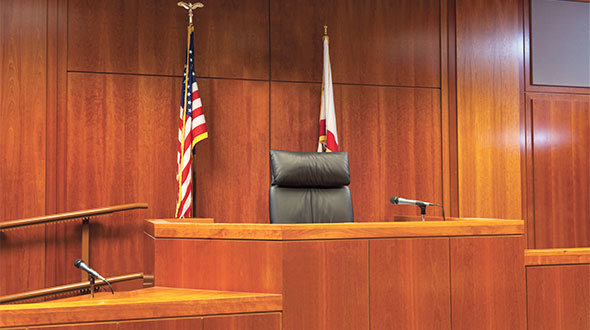Calling in expert testimony
The nature of expert testimony in the age of advanced technology and ever advancing scientific knowledge is increasingly controlled by the trial judge.

Expert testimony is a key part of any successful lawsuit, but there are limits to who can take the stand. Photo: iStock.com/JasonDoiy
This is referred to as the court’s gatekeeping function. Propane-related accidents that cause property damage and personal injuries typically call for a variety of experts to investigate and opine on what caused the fire or explosion, on the standard of care within the propane industry and on a variety of economic or damages-related issues.
A court looks at three factors when determining if an expert can testify in a trial. Is the expert qualified to testify the opinions he wishes to render? Is there a factual and scientific foundation for the opinions? Will the opinions assist the trier of fact?
In most propane-related incidents, the parties engage a Certified Fire and Explosion Investigator (CFEI) or a Certified Fire Investigator (CFI). These experts must demonstrate they are trained by obtaining the proper certifications and by demonstrating their experience investigating propane-related incidents.
We recently had a case where a mechanical engineer was retained to opine on a gasoline fire and explosion. We moved the judge to prevent the engineer from testifying as he did not have the requisite experience to offer opinions in the area of fires and explosions. The expert was qualified to speak about mechanical failures, but he was outside his area of expertise in opining on the cause of an explosion. The court agreed and prevented him from testifying.
The court also looks at how the expert arrives at his opinions. The type of work an expert should perform before rendering his opinions includes visiting the scene of the incident, if possible, or reviewing photos and video of the site. Interviewing eyewitnesses and gathering data can also drive opinions.
Relevant data varies by case but can include weather data, building construction permits, tank volume readings, gas flow calculations, lab tests of valves and appliances to see if valves operate properly, or tests of material to identify possible failures or to determine odorant levels in the liquid propane.
A court will be asked to strike an expert if he does not have a proper foundation to render his opinions. Sometimes, experts attempt to offer opinions without having any real evidentiary or scientific foundation to back up their positions. This is commonly referred to as an “ipse dixit” opinion. “Ipse dixit” is a Latin phrase meaning, “It is so because I say it is so.”
Finally, the court needs to determine whether the opinions will assist the jury in rendering its decision. Will the opinions tell the jury something that it does not already understand?
In propane explosion cases, an expert is often able to tell the jury the type of explosion that occurred, i.e., lower explosive limit, upper explosive limit or stoichiometric – the most efficient type of explosion that causes the most violent event. The expert may be able to determine the necessary gas leak rate needed to support an explosion and then rule in or out various leakage points as contributing factors to the explosion.
These types of opinions are not something an average juror would be expected to know, but they may be valuable to a jury as it attempts to assign responsibility for the incident amongst the various parties.
Experts are an important element of any successful lawsuit. Choosing the right expert requires working with experienced counsel who know the right experts to retain for your case. When you find yourself in need of legal counsel, be sure to ask about its experience handling that type of case. Ask about the experts they will retain and why they choose those experts. It will be a key part of winning your case.
John V. McCoy is with McCoy, Leavitt, Laskey LLC. His firm represents industry members nationally.
















